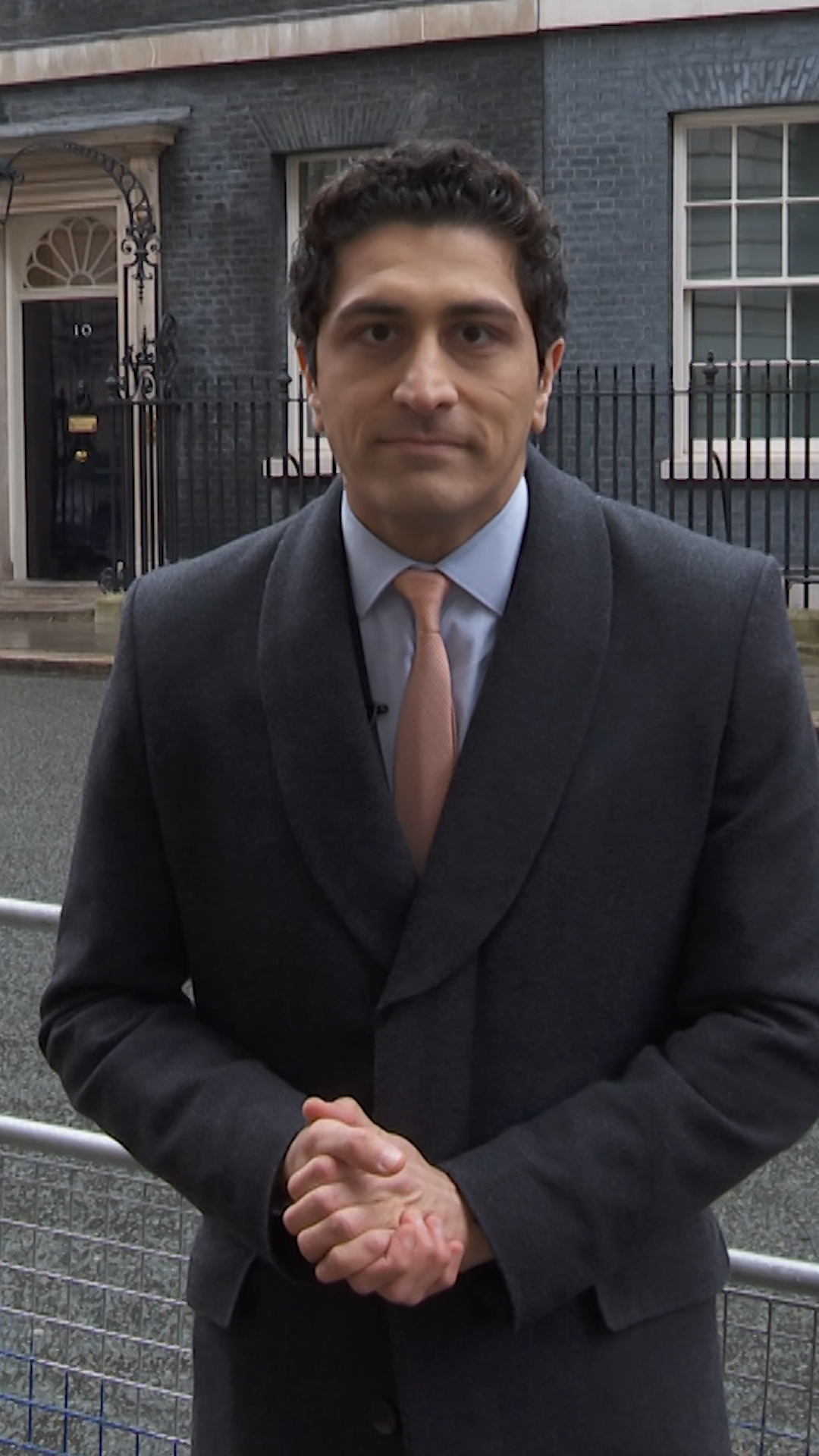
UK Prime Minister Boris Johnson meets US Secretary of State, Mike Pompeo in London. (Credit: Associated Press)
UK Prime Minister Boris Johnson meets US Secretary of State, Mike Pompeo in London. (Credit: Associated Press)
U.S. Secretary of State Mike Pompeo's trip to London was pre-planned, but the UK's decision earlier this week to allow Huawei a limited role in its 5G networks will make his conversations in the British capital a lot more uncomfortable.
Washington has been very vocal in calling for its allies to shun the Chinese tech giant, with Pompeo reiterating the message on his way to London: "Our view of Huawei is: putting it in your system creates real risk."
01:29

After sitting down with his British counterpart, Dominic Raab, Pompeo met UK Prime Minister Boris Johnson and that was the real opportunity for him to press home his message. Indeed, the White House and lawmakers in Washington are holding out hope that there may still be time to reverse the Huawei decision.
Following their meeting, Pompeo's office said the pair discussed strengthening bilateral ties following the UK's departure from the EU, including negotiating a free-trade deal and the importance of maintaining the integrity of communications networks amid Britain's Huawei decision.
U.S. President Donald Trump's top diplomat no doubt made clear to the prime minister that moving ahead with the 5G move could jeopardize intelligence sharing.
The security relationship between the two countries spans decades and transcends politics. It has been fundamental to the wars they have jointly fought – such as in Iraq and Afghanistan – and to keeping global cities such as London and New York safe.
Britain's prime minister is adamant the decision doesn't have to disrupt the historic alliance. He told parliament, the UK would do "absolutely nothing to imperil our relationship with the United States… or to imperil our extremely valuable cooperation with Five Eyes security partners," referring to the so-called security bloc that also includes Australia, New Zealand and Canada.
But Pompeo came to London with a warning that there could be consequences: "We will make sure that when American information passes across a network, we are confident that that network is a trusted one.”
There is evidence that the threat of restricting intelligence and data is being taken seriously in political circles in the UK, with lawmakers in the prime minister's Conservative Party already calling for the decision to be reviewed. With the government's mind seemingly made up, Washington may look at influencing politicians in Westminster on the issue, who will get to review the UK's plans for "high-risk" 5G vendors before it becomes law.
The UK government, though, is confident its decision is based on evidence. It carried out a wide-ranging review over several months looking at 5G security and found no evidence Huawei was being used for spying by the Chinese state – a claim also denied by both the company and Beijing.
However, the ace the U.S. holds is trade. The UK is set to leave the European Union on Friday and, aside from a trade deal with the EU, a free-trade agreement with the U.S. is top of the government's agenda in London. This point has been relayed to me numerous times around Downing Street in recent weeks.
And the U.S. does matter economically. It is the UK's largest non-EU trading partner and, according to the office of the U.S. trade representative, bilateral trade was worth around $262 billion in 2018.
With so much at stake, Boris Johnson will be keen to try to defuse any possible tensions ahead of negotiations on a trade deal, set to officially start in early February.
So, he will be buoyed by Pompeo's comments in London on Thursday that the UK will be top of the list when it comes to a trade deal: "The previous administration took a view that if the United Kingdom made this decision they'd be at the back of the line – we intend to put the United Kingdom at the front of the line."
He also said the relationship between the two countries was in a "fantastic place."
In public, Pompeo's visit will be a cordial one. But behind closed doors, he will be urging the UK to reconsider its decision to allow Huawei to continue providing infrastructure for its 5G networks.
It took years for Britain to reach that conclusion, during which it resisted U.S. pressure. And that's why the U.S. secretary of state will be keen to delicately handle the situation, unlike the more bombastic approach often associated with Trump. But, the message from Washington is pretty clear – this isn't a done deal.
Remember to sign up to Global Business Daily here to get our top headlines direct to your inbox every weekday